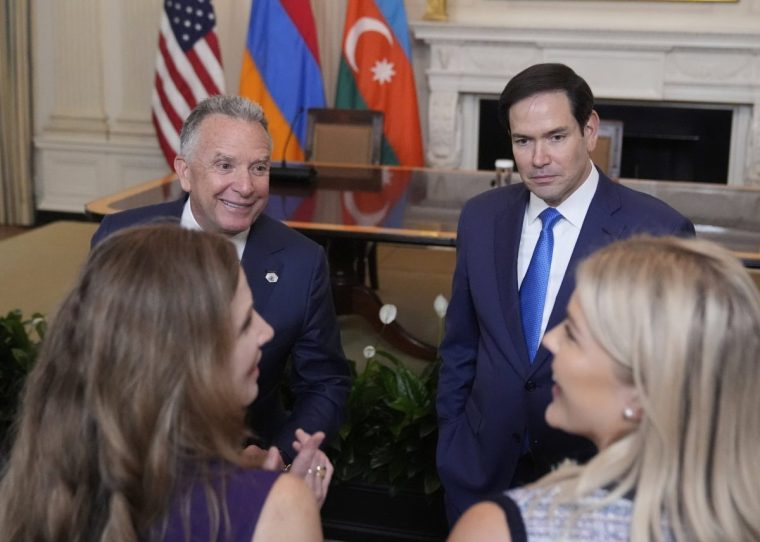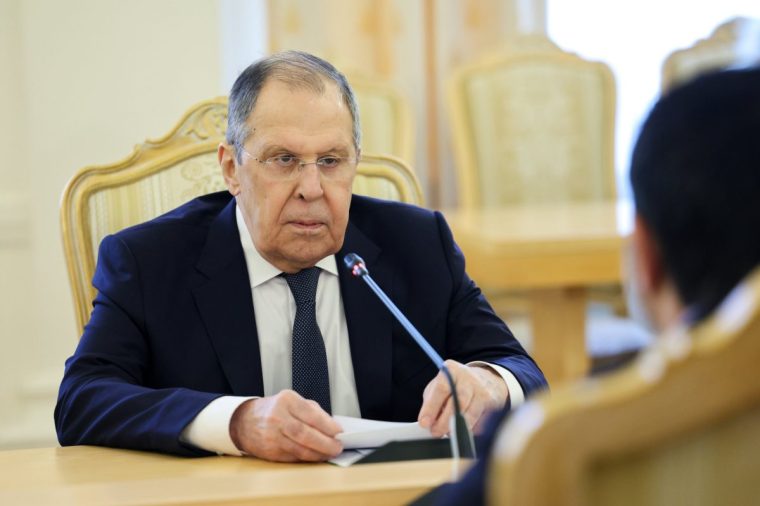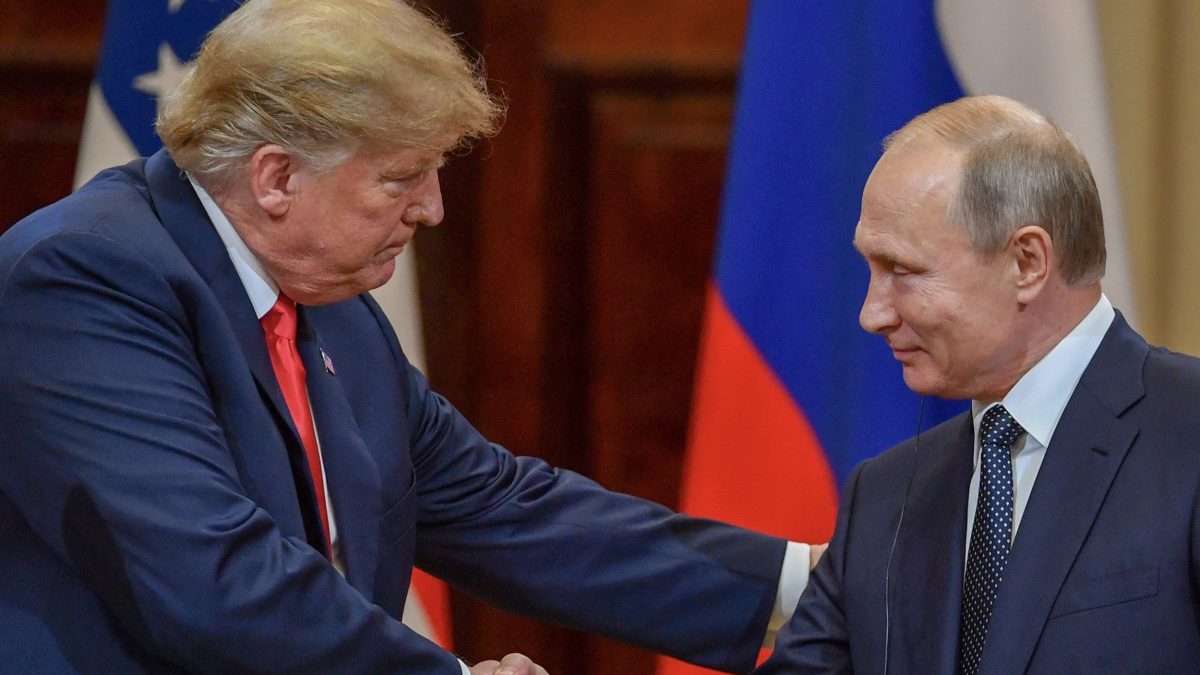The Kremlin is so cocksure about the outcome of the summit that Putin has already invited Trump to visit Russia
WASHINGTON DC – If Friday’s summit between Russian President Vladimir Putin and US President Donald Trump really goes ahead, do not be surprised if – upon arrival in Alaska – the Kremlin leader looks like the cat that stole the cream.
For Putin, setting foot on American soil for the first time in a decade will be a stunning achievement, especially given the fact that the Trump administration appears to be imposing absolutely no preconditions for the meeting. Sanctioned to the hilt by Washington and its European allies and wanted by the International Criminal Court for war crimes, Putin would have been forced by previous US administrations to meet an uncomfortably high bar to score an invite to the United States. Trump is throwing America’s doors wide open for him, and indicating that Putin deserves a place back at the world’s top table.
The Kremlin continues to run circles around the White House by insisting that Putin’s main interest at the summit is improving bilateral relations: those with the United States rather than Ukraine. Seizing on Trump’s previously announced intention to boost entirely dormant US economic co-operation with Russia, Kremlin aide Yuri Ushakov said that Alaska and the Arctic offered significant opportunities for “the possible development of strategic co-operation” between the two countries.
Putin adviser Kirill Dmitriev went even further, noting that Alaska had been sold to the United States by Russia in 1867, and could therefore be considered “Russian America”. On social media he suggested Alaska’s “Orthodox roots, forts and fur trade…echoes those ties”. The Kremlin is so cocksure about the outcome of the summit that Putin has already invited Trump to visit Russia for a follow-up.
 Special Presidential Envoy Steve Witkoff, left, and multitasking Secretary of State Marco Rubio (Photo: Mark Schiefelbein/ AP)
Special Presidential Envoy Steve Witkoff, left, and multitasking Secretary of State Marco Rubio (Photo: Mark Schiefelbein/ AP)
On Ukraine, the Russian side spent the weekend insisting that Putin was in no mood for compromise. Far from embracing Trump’s claim on Friday that “there’ll be some swapping of territories to the betterment of both” Russia and Ukraine, Kremlin officials insist Putin will settle for nothing less than internationally recognised Russian sovereignty over Crimea and the entire Donbas region.
For Ukrainian President Voldymyr Zelensky and his European allies including Britain, those proposals are a non-starter. Zelensky, not yet invited to participate in Friday’s events, warned of “dangers” ahead for Kyiv during a TV address on Saturday, a reference to the widely shared fear that Trump and Putin are simply planning to carve Ukraine up to their own satisfaction.
European allies now find themselves exactly where they did not want to be: locked out of a car that Trump insists he is qualified to drive solo, with Putin sitting alongside him navigating the route. The former US approach, espoused by the Biden administration and encapsulated in the mantra “nothing about Ukraine without Ukraine”, has now been consigned to America’s historic ash heap.
 The Russian Foreign Minister, Sergei Lavrov, has held the role since 2004 (Photo: Russian Foreign Ministry / Handout/Anadolu via Getty Images)
The Russian Foreign Minister, Sergei Lavrov, has held the role since 2004 (Photo: Russian Foreign Ministry / Handout/Anadolu via Getty Images)
Trump, fuelled by fervour to secure the Nobel Peace Prize, appears to view the negotiation over Ukraine as quick and easy. Never detail-orientated at the best of times, he is steamrollering time-honoured diplomatic protocols, and putting negotiations in the hands of a rag-tag team led by US Special Envoy (and real estate magnate) Steve Witkoff and supported by the country’s multitasking Secretary of State, Marco Rubio (now also the acting national security adviser and the acting archivist of the US). Trump, after falsely accusing Ukraine of starting the war on several occasions, even had to be cajoled by European leaders into considering Zelensky’s ceasefire requirements.
The White House has prevaricated over whether Zelensky should be present in Alaska or not. When Trump first announced his summit with Putin, he indicated that he also hoped to broker a three-way conversation that would include the Ukrainian leader. But after the Kremlin rejected that proposal, the White House walked back suggestions that a Putin/ Zelensky face-off was a prerequisite for any Trump meeting with the Russian leader. Realising that the summit might yet collapse, many Washington reporters are only in the market for fully refundable flights to Alaska.
The past week has seen yet another 180-degree turnaround in the US approach to Russia. Only last weekend, the White House was threatening punishing, “this-time-it’s-for-real” sanctions unless Putin ended his war within days. But during one fast Kremlin meeting with Witkoff on Wednesday, Putin proved easily able to persuade Trump to abandon his half-hearted threats and ignite the invitation to Alaska.
Putin, his experienced foreign minister Sergei Lavrov and other senior members of his entourage have spent decades in power, pushing back against far more skillfully choreographed US efforts to confront and undercut him. If his presidential jet does land in Alaska later this week, Putin continues to view his dealings with Trump as child’s play.

